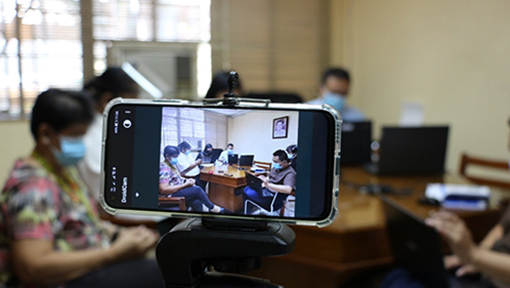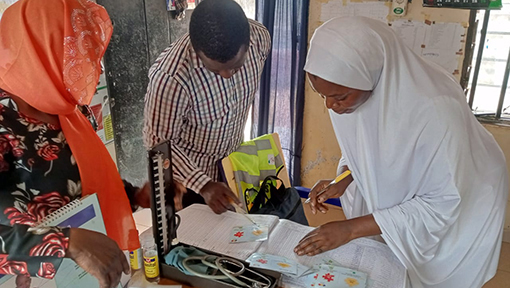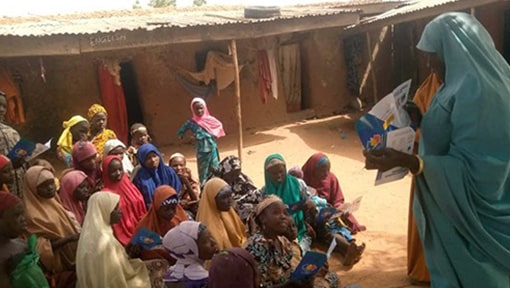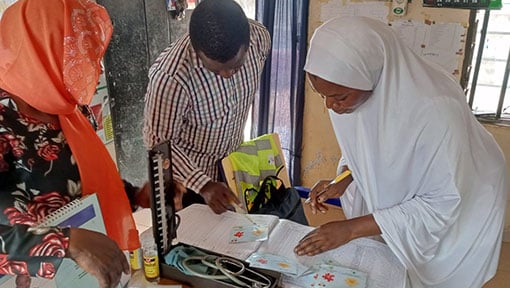Strengthening Local Leadership in The Philippines to Propel Local Ownership and Action
Contributor: Raymond Jay Mazo

City Leadership in Cagayan de Oro City listening during the LAYFC online training in TCI cities.
The Philippine cities of Dipolog, Cagayan de Oro and Puerto Princesa have taken critical steps over the past year to become adolescent-friendly cities that actively address the sexual and reproductive health needs of the youth in their communities to reduce unintended teenage pregnancies.
These steps included coaching sessions with city mayors on high-impact and promising solutions, including best practices related to leadership and governance, how to deliver quality adolescent and youth sexual and reproductive health (AYSRH) services, and engaging diverse youth populations through segmented demand generation. These sessions not only generated commitments from the local chief executives but also their prompt action in the formation of City Leadership Teams (CLT) to help co-own the challenge and solutions for addressing teenage pregnancies in their cities.
Speaking before the newly constituted CLT of Puerto Princesa, Mayor Lucilo Bayron noted the importance of working together strategically:
I want the City Implementation Team to meet at least monthly to uncover the challenges, set up the systems and strategize.”
In a call to action with his CLT, Mayor Dexter Uy of Dipolog City stressed:
Let us work together because this problem cannot be solved by one department alone. Let us also have near-real time data so that we will know what our problem is. Once we know our problem it is easy to come up with innovations and solutions to address it.”
While Mayor Oscar Moreno of Cagayan de Oro urged the city health and population team to think of more inclusive solutions:
Since we have adolescent pregnancies coming from our nearby provinces, let us not stop at simply disaggregating our data; rather let us think of ways of addressing these pregnancies aside from dealing with those who are residents of our city.”
TCI serves as coaches to the mayors and CLTs while training them to serve as coaches of barangay leaders and youth groups, so the city has the capacity to address its challenges and implement solutions. As part of the TCI program, 45 local officers who are members of the CLTs graduated from a seven-day Leadership for Adolescents and Youth Friendly Cities (LAYFC) training aimed at developing responsive leadership and governance systems for the immediate reduction of teenage pregnancy in their cities.
For Dr. Liova De Guia who heads the OB Department of JR Borja General Hospital in Cagayan de Oro City, the LAYFC training sparked her motivation to contribute more to the improvement of young people’s lives. She shared:
TCI’s LAYFC experience gave me more reasons to wake up each morning. It inspired me to work even more and help shape the future by guiding young people to become leaders and models for their fellow youth.”
Marcus Swanepoel, Deputy Director of Roots of Health – a non-profit organization based in Puerto Princesa, noted that the program is a good example of public-private partnership where both sectors mutually learn from each other’s experiences about how to improve access to reproductive health services. Mr. Swanepoel shared:
What struck me from the training was how meaningful dialogues engage partners better. There is always a common ground, it is just a question of finding it.”
The importance of constant dialogue and engagement with stakeholders especially at the barangay or village level was also echoed by Dr. Rachel Dilla, the City Health Officer of Cagayan de Oro. She shared that bridging leadership principles of ownership and co-ownership – which is integral to the LAYFC approach – helped them win the hearts of barangay leaders and propelled them to action after realizing the gravity of the teen pregnancy problem in Cagayan de Oro. She explained:
The barangay leaders are now engaged in addressing the problem and most of them are providing counterpart funds to run LAYFC training in their barangays. We are hopeful that this will be a key to creating locally contextualized innovative solutions to the problem.”
The importance of responsive leadership in addressing development challenges is another key reflection from the LAYFC graduates. Ana Herrera, who leads the City Population Office of Puerto Princesa, shared:
I wish responsive leadership spreads like a virus in this time of pandemic; a super spreader that can easily multiply and affect other people in a small span of time. While the pandemic remains a strong opponent in our quest to deliver essential health services, the LAYFC training made us realize that we need to regain our focus as good leaders, and never lose sight of our goal to prevent and reduce teen pregnancy in our localities.”
As part of the LAYFC training, conducted by TCI in the Philippines in partnership with the Commission on Population and Development (POPCOM), the cities each designed a plan of action that ensures inter-sectoral collaboration and community participation. TCI is excited to see what this coming year holds for Dipolog, Cagayan de Oro and Puerto Princesa as well as POPCOM’s expansion cities.






